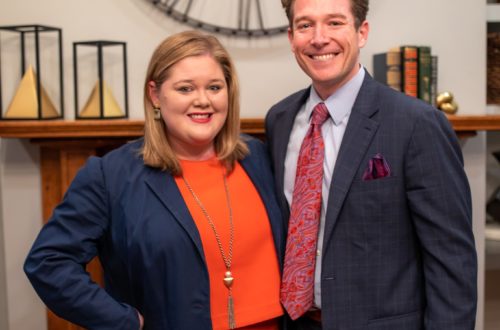Breach of Fiduciary Duty:
A fiduciary is an individual or corporation to whom property or power is entrusted for the benefit of another. Fiduciaries must prudently care for any such assets, and may also have a number of additional duties, depending on the nature of their fiduciary relationship. These duties include, without limitation: a duty of good faith and fair dealing, a duty of loyalty, a duty of impartiality, a duty to delegate, a duty to inform, and a duty to maintain adequate records.
To succeed on a breach of fiduciary duty claim, the plaintiff must prove three (3) elements: (1) a fiduciary relationship existed; (2) the fiduciary breached a fiduciary duty; and (3) damages resulted from the breach of the duty.[1]
Constructive Fraud:
Constructive Fraud occurs when a person or entity gains an unfair advantage over another through unjust means, usually by lying or omitting important details. Constructive fraud differs from actual fraud because the elements of constructive fraud do require intent, or actual knowledge of the lie or omission.
To succeed on a constructive fraud claim, the plaintiff must prove three (3) elements: (1) a relationship of trust and confidence existed; (2) the defendant took advantage of his position of trust to benefit himself; and (3) there was an injury to the plaintiff.[2]
The Differences:
If these two causes of action sound the same, it is because they are very similar and, often, you will find allegations of both breach of fiduciary duty and constructive fraud in the same lawsuit. However, there are a few critical differences.
(1) Benefit to the Superior Party:
To commit constructive fraud, the superior party (i.e., the one in whom the plaintiff put trust and confidence) must have benefited through the alleged action or inaction. However, a fiduciary does not have to personally benefit from the transaction to be guilty of a breach of fiduciary duty. Instead, the plaintiff must show the fiduciary failed to act in good faith regarding the plaintiff’s interests.[3] Thus, when a fiduciary relationship exists, all constructive fraud claims are a breach of fiduciary duty. However, not all breach of fiduciary duty claims constitute constructive fraud since a constructive fraud claims require a benefit to the superior party.
(2) Statute of Limitations:
Breach of fiduciary duty claims have a statute of limitations of three years.[4] The statute begins to run when the plaintiff “knew, or by due diligence, should have known” of the actions underlying the claim.[5] However, the statute of limitations for a constructive fraud claim is ten years.[6] This statute begins to run when the plaintiff suspects something is amiss. The plaintiff is not permitted to remain willfully ignorant. However, so long as the plaintiff could not have discovered the fraud through reasonable diligence, the statute does not begin to run.[7] This longer statute of limitations benefits parties who wish to bring a constructive fraud claim, but these parties must also prove the superior benefitted personally from the constructive fraud.
When determining which claim to pursue in court, many attorneys allege breach of fiduciary duty and constructive fraud claims in conjunction with one another. However, if knowledge of the claim arose more than three years prior to the date of filing the suit, then the statute of limitations bars a breach of fiduciary duty action. Alternatively, if there is no evidence that the accused party benefited from his/or her actions, then it is difficult to prove constructive fraud. Attorneys must look at all the facts and circumstances surrounding the case to determine which claim to pursue, and/or if pursuing both claims is preferable.
An experienced attorney can help determine one’s available remedies and the best way to proceed given the complexities of the particular situation. For more information, please visit us at www.lindleylawoffice.com.
[1] Green v. Freeman, 367 N.C. 136, 749 S.E.2d, 268 (2013).
[2] Keener Lumber Co. v. Perry, 149 N.C. App. 19, 28, 560 S.E.2d 817, 823 (2002).
[3] White v. Consol. Planning Inc., 166 N.C. App. 283, 294, 603 S.E.2d 147, 155-56 (2004).
[4] N.C. Gen Stat. § 1-52(1) (2015).
[5] Toomer v. Branch Banking & Trust, 171 N.C.App. 58, 68-69, 614 S.E.2d 328, 336 (2005).
[6] N.C. Gen. Stat. § 1-56 (2015).
[7] Shepherd v. Shepard, 57 N.C. App. 680, 682-83, 292 S.E.2d 169, 171 (1989).



